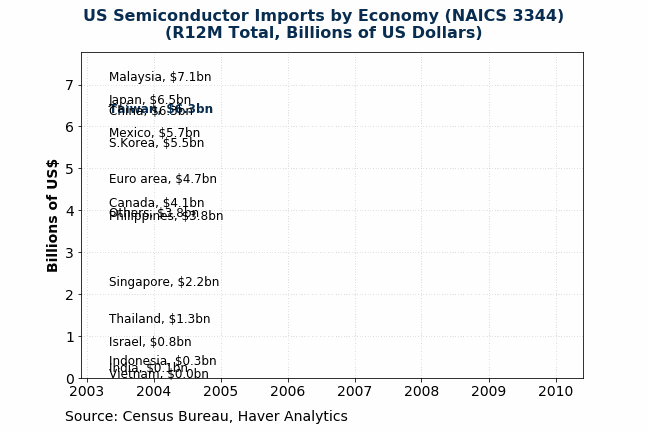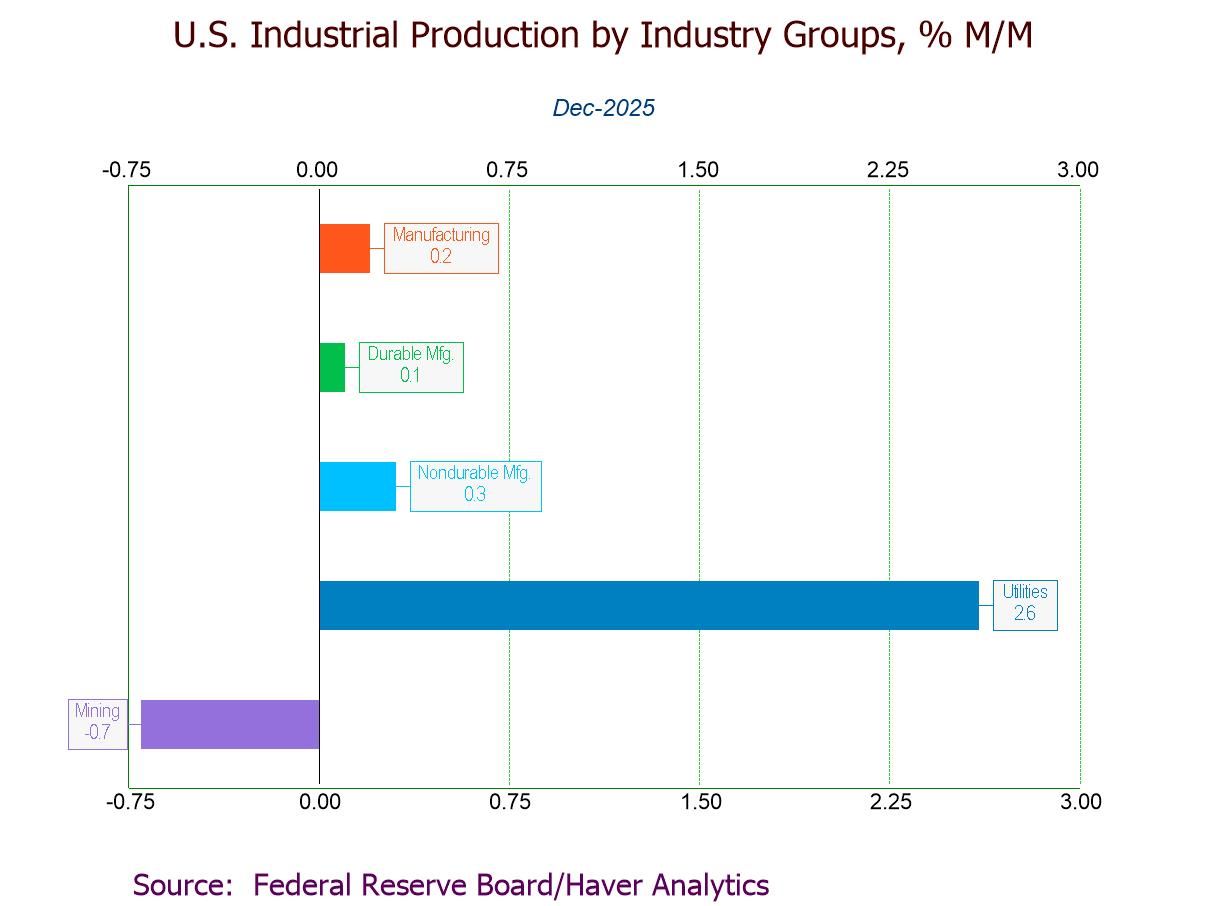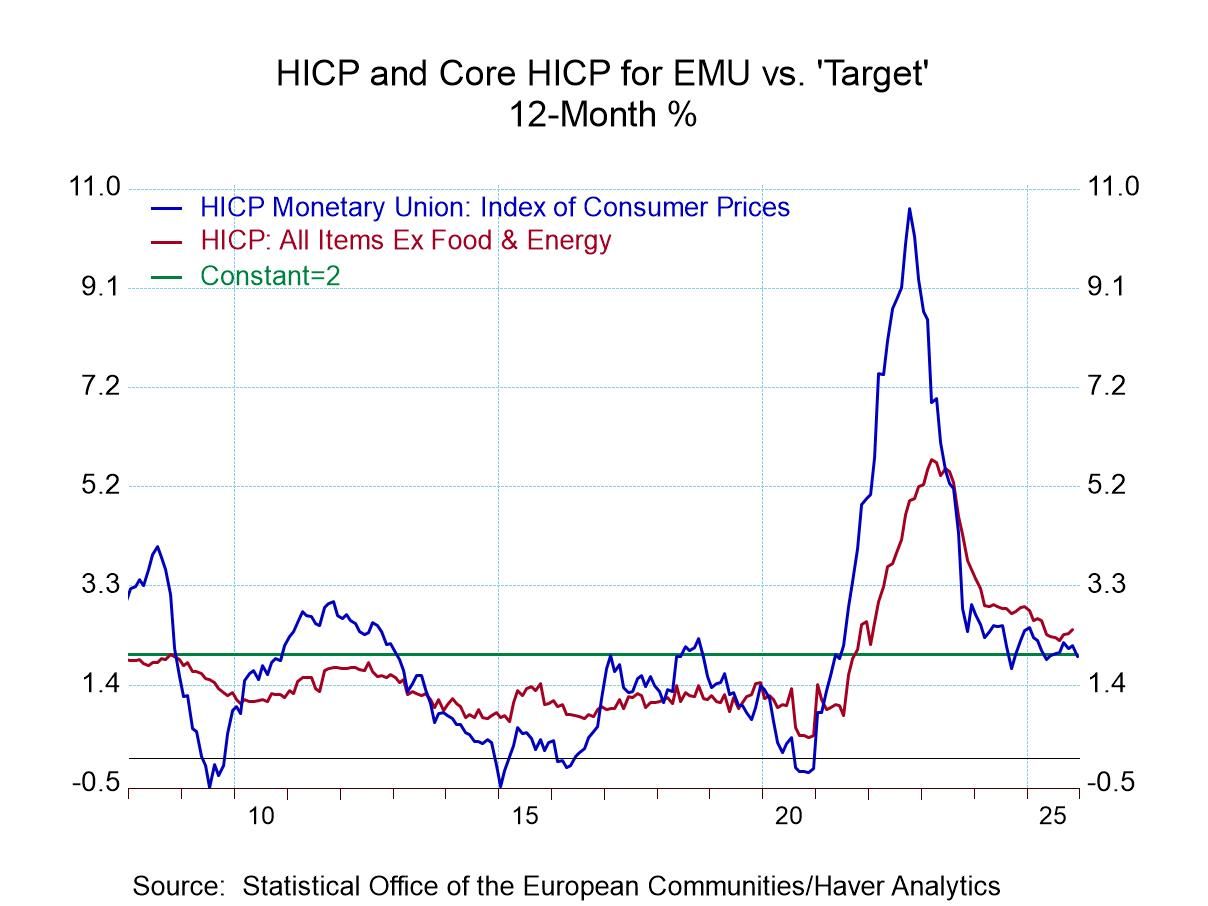U.S. FHFA House Prices Ease in July
by:Tom Moeller
|in:Economy in Brief
Summary
- Prices edge lower for fourth straight month.
- Year-to-year increase is lowest since 2012.
- Monthly price changes are uneven amongst regions.
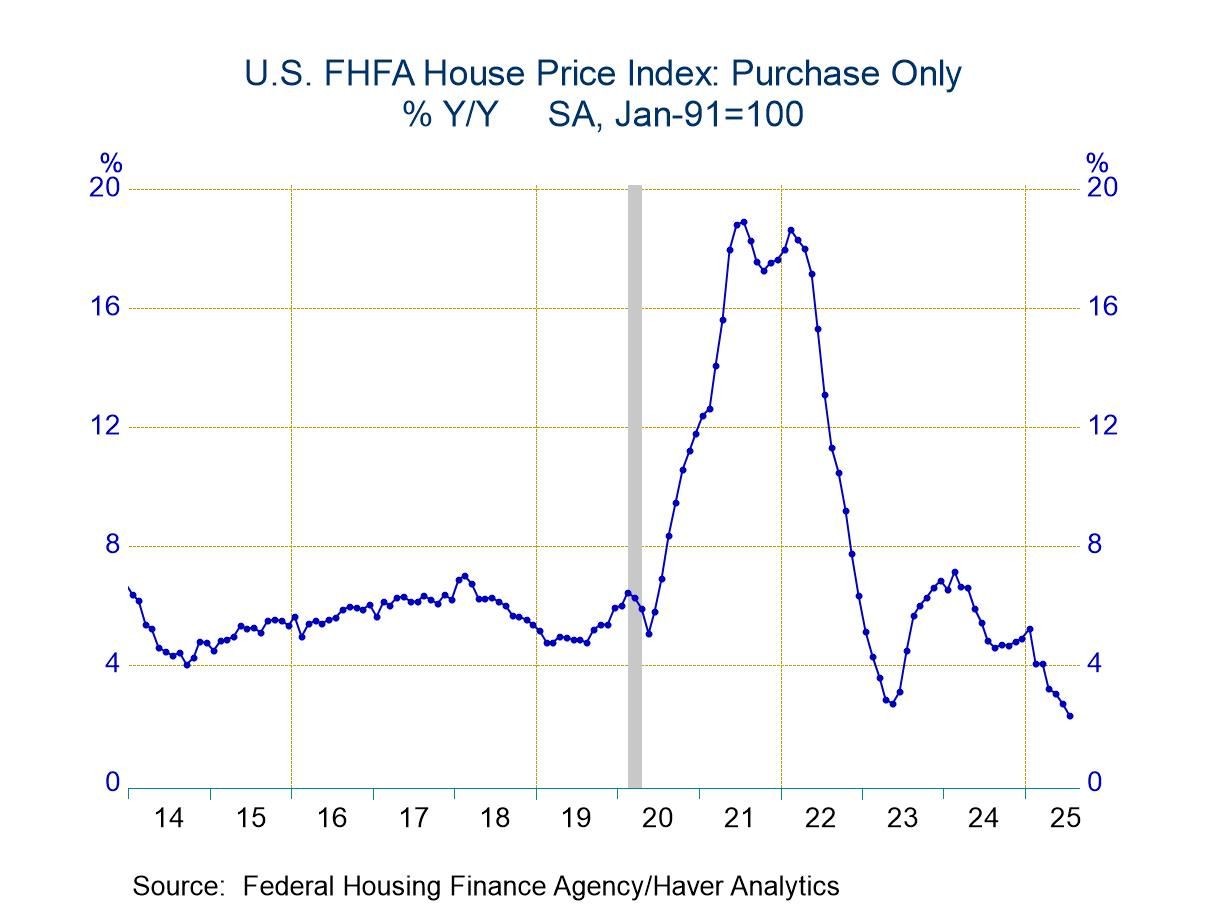
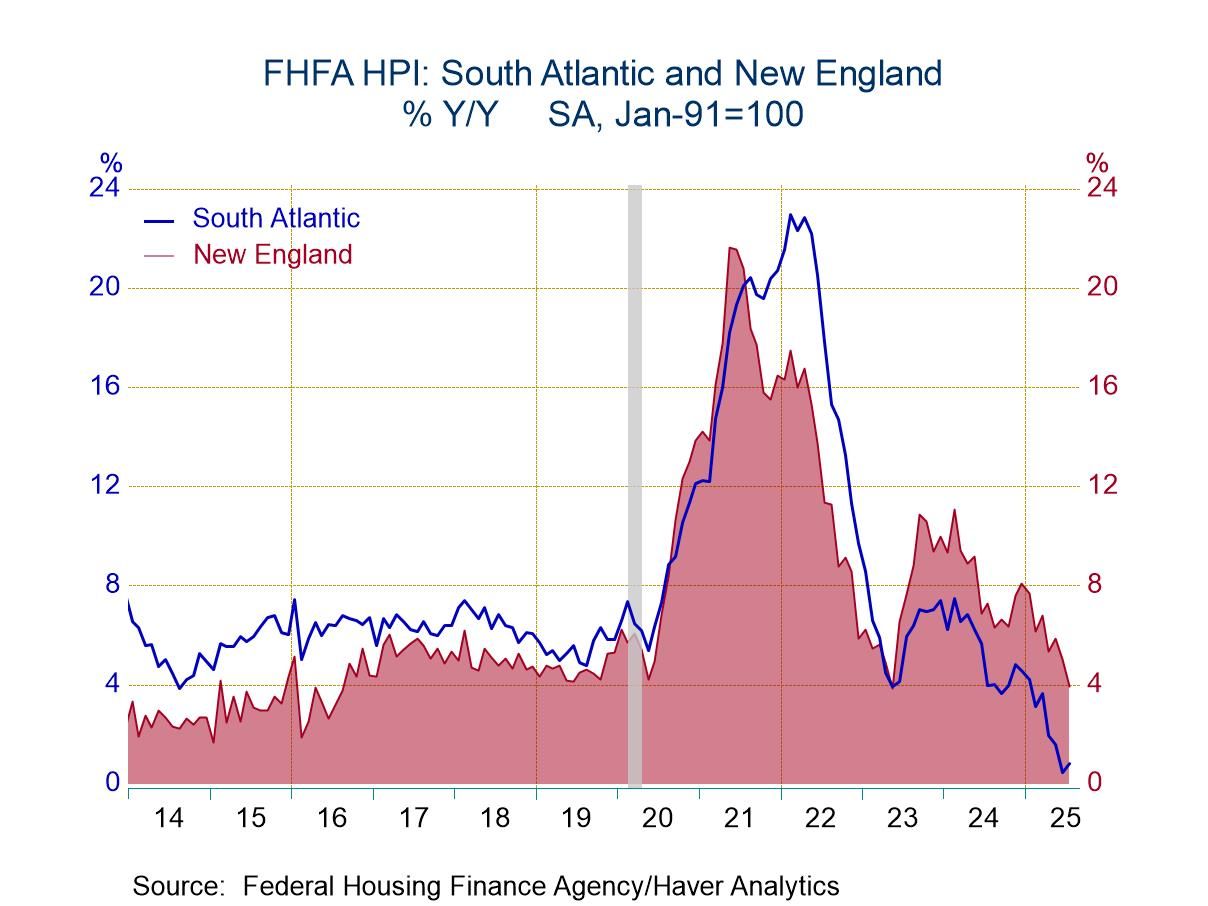
U.S. house prices slipped 0.1% (+2.3% y/y) during July after unrevised declines of 0.2% in June and 0.1% in May. The annual increase is well below its recent high of 7.1% in February 2024, according to the Federal Housing Finance Agency (FHFA) House Price Index.
House price changes were mixed across the nine Census divisions of the country. Prices in the Middle Atlantic region declined 1.2% (+5.1% y/y) and 0.8% (+2.4% y/y) in the East South Central region. In the Mountain region, prices were off 0.2% (+1.0% y/y) while in the West North Central region, prices also weakened 0.2% (+3.8% y/y) following three consecutive monthly increases. In New England house prices slipped 0.1% (+3.9% y/y).
In the South Atlantic region, house prices were unchanged in July and rose 0.8% y/y. House prices in the East North Central region improved 0.3% (4.1% y/y) after two monthly declines, while in the West South Central region, prices rose 0.2% (1.7% y/y), up for the third straight month. In the Pacific region, house prices also were 0.2% higher both m/m and y/y, following five straight months of decline.
The FHFA house price index is a weighted purchase-only index that measures average price changes in repeat sales of the same property. An associated quarterly index includes refinancing the same kind of properties. The indexes are based on transactions involving conforming conventional mortgages purchased or securitized by Fannie Mae or Freddie Mac. Only mortgage transactions on single-family properties are included.
The FHFA data are available in Haver’s USECON database.
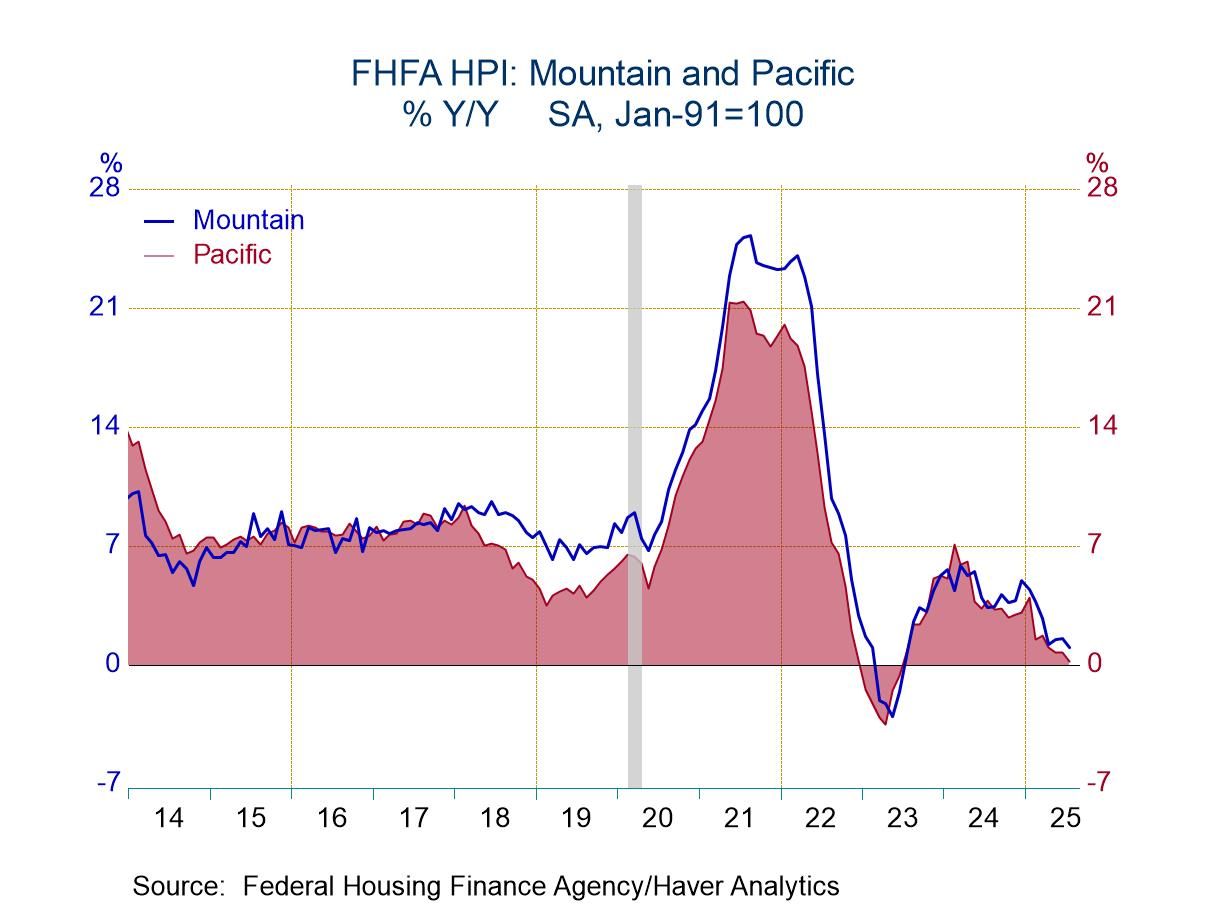
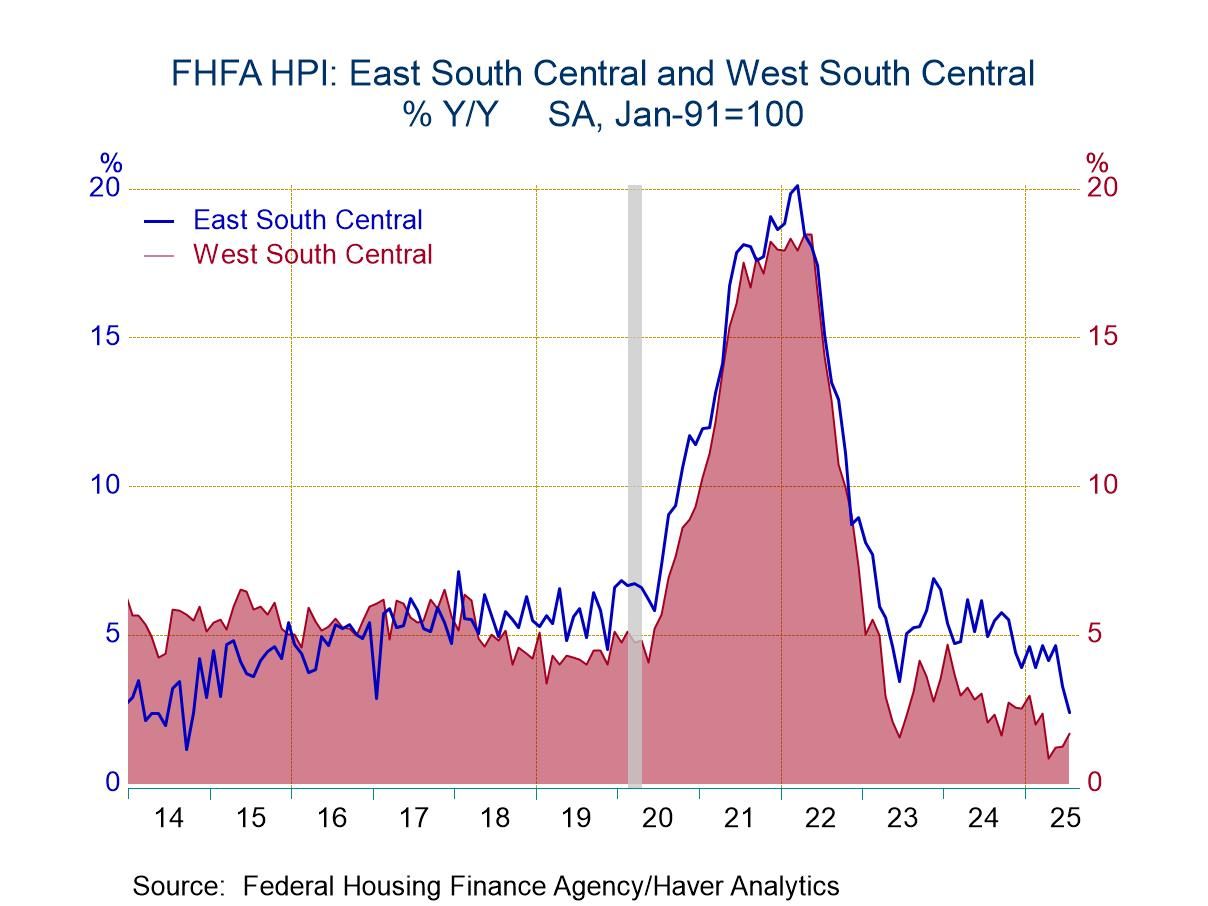
Tom Moeller
AuthorMore in Author Profile »Prior to joining Haver Analytics in 2000, Mr. Moeller worked as the Economist at Chancellor Capital Management from 1985 to 1999. There, he developed comprehensive economic forecasts and interpreted economic data for equity and fixed income portfolio managers. Also at Chancellor, Mr. Moeller worked as an equity analyst and was responsible for researching and rating companies in the economically sensitive automobile and housing industries for investment in Chancellor’s equity portfolio. Prior to joining Chancellor, Mr. Moeller was an Economist at Citibank from 1979 to 1984. He also analyzed pricing behavior in the metals industry for the Council on Wage and Price Stability in Washington, D.C. In 1999, Mr. Moeller received the award for most accurate forecast from the Forecasters' Club of New York. From 1990 to 1992 he was President of the New York Association for Business Economists. Mr. Moeller earned an M.B.A. in Finance from Fordham University, where he graduated in 1987. He holds a Bachelor of Arts in Economics from George Washington University.



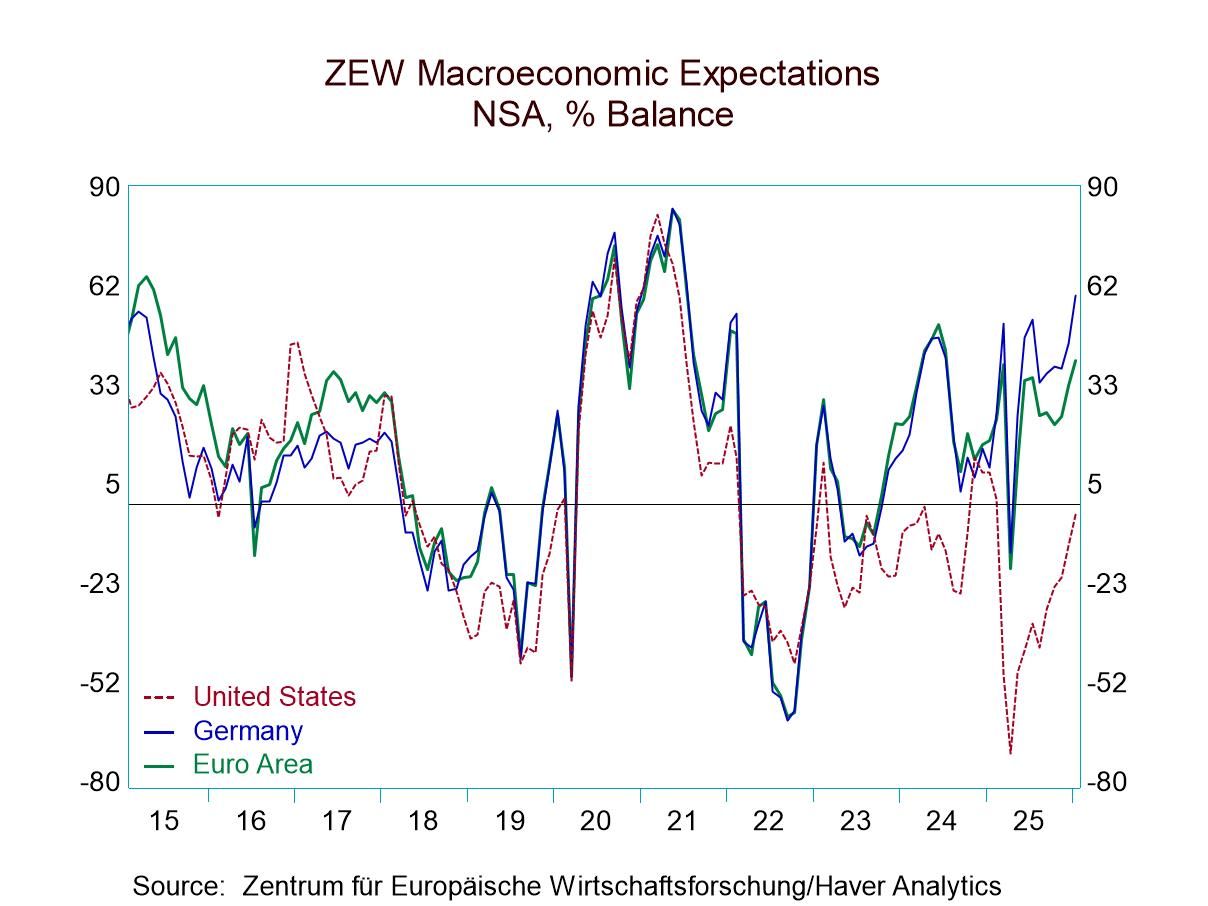
 Global
Global